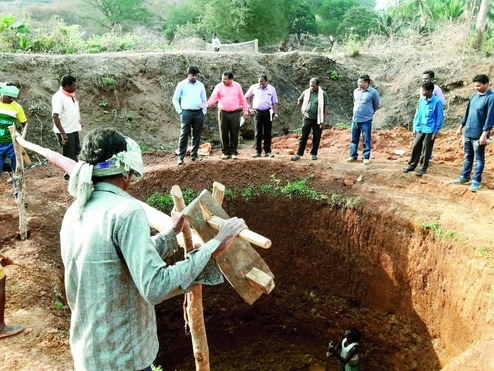

Koraput: The administration has decided to dig at least 500 wells across the district's 14 blocks under the Centre's Mahatma Gandhi National Rural Employment Guarantee Act before the onset of monsoon.
The district administration is hopeful that digging wells in agricultural fields will not only provide much-required irrigation facilities to farmers, but also double their income.
"Providing irrigation facilities by constructing canals to almost every corner of the district is not feasible. Hence, digging wells in is the best option," said Koraput collector K. Sudarshan Chakravarthy.
"Any drought situation, if arises, could be compensated by farmers digging wells on their fields," he added.
A district official said each of the 40ft deep and 20ft wide well would cost Rs 2.70 lakh.
The wells will also have stone packing all around and the entire amount will be paid under the MGNREGA.
"Any farmer with his own land, irrespective of the amount, is eligible to dig a well under the Centre-sponsored employment guarantee scheme," the collector said.
Officials said the work on the wells has already began with Maoist-hit blocks such as Narayanpatna, Bandhugaon and Laxmipur among the first to get the work orders.
"Wells at villages in far-flung areas with no or inadequate irrigation facilities are being done on a priority basis. We hope that we can meet the target of digging 500 wells before monsoon," said Bhabani Shankar Kalo, project director of Koraput's District Watershed Mission.
"The administration will also facilitate farmers to get loans to purchase motors to lift water from the wells for irrigation," he added.
The administration is hopeful that open wells will help recharge the groundwater.
"At most areas, including urban and rural, rainwater is released to rivers through drains and doesn't infiltrate the soil and the weathered zones. Hence, digging wells is a good option to store rainwater and, subsequently, to recharge groundwater," the collector said.
The district administration take care to generate mass awareness about the programme in rural areas through village meetings, leaflets and public announcements at weekly markets, Chakravarthy said.

